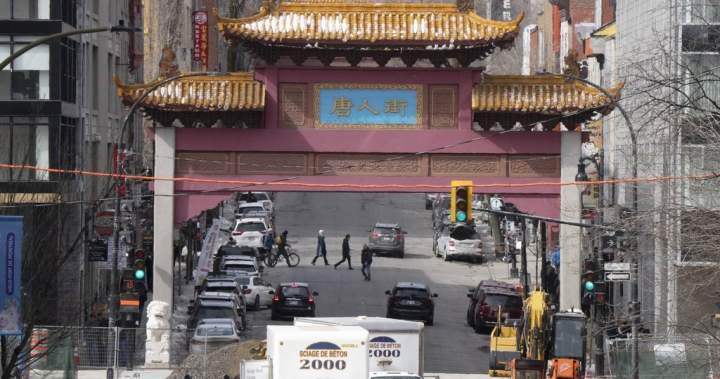Chinese Montrealers say they have been left with many questions after the RCMP closed an investigation into two community centres suspected of acting as clandestine police stations for the Chinese Communist Party.
The executive director of the two Montreal-area non-profits says she’s “very happy” the investigation has come to a close. But Xixi Li says she still wants to know why the investigation happened in the first place, adding that she only learned about the probe’s launch and closure from the media.
“We don’t know why this happened, there’s no one who informed us,” she said, adding that RCMP officers interviewed some of the centres’ board members, but never spoke with her or visited the offices of the non-profits — Service à la Famille Chinoise du Grand Montréal in the city’s Chinatown district, or Centre Sino-Québec de la Rive-Sud, in the suburb of Brossard.
Quebec RCMP announced in early 2023 that they were investigating two Montreal-area organizations for allegedly hosting secret Chinese government police stations. At the time, the RCMP said the stations were used to put pressure on members of the Chinese community in Canada, sometimes by threatening friends or relatives in China. They said they were also investigating similar allegations of clandestine police stations in Vancouver and Toronto.
The force recently confirmed it has closed the investigation into the Montreal centres, and is not recommending that charges be laid for the moment. RCMP have not confirmed whether the investigations are still ongoing in Toronto or Vancouver.

Get breaking National news
For news impacting Canada and around the world, sign up for breaking news alerts delivered directly to you when they happen.
“We confirm that we have closed the foreign interference investigation into alleged illicit activities reported in connection with Chinese diaspora service centres in the Montreal area,” RCMP Cpl. Erique Gasse said in an email.
Gasse added that RCMP would continue efforts “to combat foreign interference and any form of intimidation, harassment, threats or harmful targeting of diaspora communities or individuals in Canada.”
While Li is relieved by the end of the probe, and grateful for those who supported her, she and other community members say the highly publicized allegations caused enormous damage. Li said the centres lost 70 per cent of their funding, forcing them to lay off staff and cut services. She said they also nearly lost the Montreal building where one of the non-profits was located after the bank decided to call in the mortgage.
“It’s very painful because we’re there to help the people that are very marginal in society,” said Li, adding that the two centres’ activities include providing language classes and helping new immigrants access government services and employment.
Li, who is also a city councillor in Brossard, said she was also the subject of personal attacks that left her afraid to leave her home and forced her to take medication in order to sleep.
Li and the organizations have filed a $4.9-million lawsuit against the RCMP, arguing officers defamed them by publicly branding them as suspected “police stations.” That lawsuit, which remains before the courts, says the allegations against the groups are unfounded.
Walter Tom, an immigration lawyer and Chinese community advocate, believes the RCMP’s decision to go public with their investigation was a “total violation of due process.”
“Whatever happened to the presumption of innocence? It’s very strange,” he said Tuesday in a phone interview. “There needs to be questions asked as to why the RCMP decided to go public.”
He says the force’s actions have stigmatized members of the Chinese community. The RCMP, he added, should issue an apology and a statement clearly stating that no evidence of wrongdoing was found. He’s also hoping the lawsuit will provide a form of financial reparations.
May Chiu, the co-ordinator of the Montreal Chinatown Roundtable, says the investigation had a “chilling effect” on the community. She said the people who were directly affected include seniors who don’t speak English or French, and depend on the organizations to access services. Community members were subject to discriminatory comments branding them as “Chinese spies,” and became afraid to access the centres or to speak favourably about China at all, Chiu said.
“It’s just unacceptable what people have suffered,” she said.
Chiu, like Tom, believes the RCMP has to do more to help restore the organizations’ reputations. She also wants assurances that other groups won’t be treated the same way.
“What precautions are they going to take so that innocent bystanders are not targeted and hurt, and racialized communities are not stigmatized by RCMP actions?” she said.
Read the full article here
